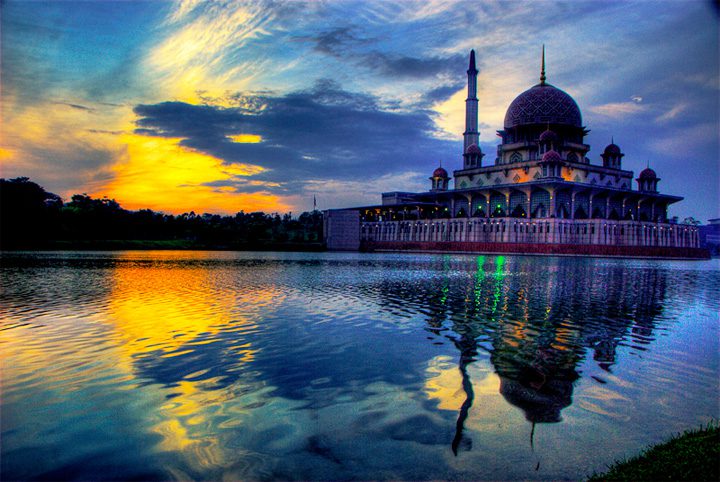
Some preliminary notes on Islam in Malaysia for The Book:
The religious history of the area known today as Malaysia parallels that of Indonesia, which is scarcely surprising, given their geographical proximity to each other. (The large Indonesian island of Sumatra is separated from Malaysia only by the narrow Straits of Malacca.)
Traders and settlers from India and China arrived in the region as early as the first century AD, establishing trading ports and coastal towns in the centuries immediately following. Predictably, their presence introduced strong Indian and Chinese influences into the local cultures, and many of the people of the Malay Peninsula adopted either Hinduism or Buddhism. Sanskrit inscriptions appear as early as the fourth or fifth century.
Islam arrived among the Malays in the fourteenth century, and its spread accelerated in the early fifteenth century with the founding of the Malacca Sultanate.
Today, roughly 62% of the Malaysian population adheres to Islam, mostly in its Sunni form. Religious divisions correspond rather precisely to ethnic divisions.
The Malaysian constitution grants a form of freedom of religion but also establishes Islam as “the religion of the federation.” (The elected king of Malaysia is regarded as the defender of Islam.)
Additionally, the constitution strictly defines “Malays” as the ethnic group that is Muslim, speaks Malay regularly, practices Malay customs, and has either lived in or can claim ancestry from Brunei, Malaysia, and/or Singapore. Non-Malay citizens of Malaysia are mostly of Chinese descent (overwhelmingly Buddhist, but including some Christians and Taoists) or of Indian descent (including about ten percent who are either Muslim or Christian, with the rest Hindu).
Islam in Malaysia has historically been quite tolerant, and Malaysian politicians consider religious toleration an important cultural and national value. Still, no ethnic Malay is allowed to leave Islam, while non-Malay Muslims seeking to “apostatize” or convert to a non-Islamic faith require permission from a shari‘a court, which is rarely (if ever) granted.[1]
In matters closely connected to the practice of their faith, Malaysian Muslims are required to follow the decisions of Syariah (shari‘ah) courts. The judges of these courts, in their turn, are required to rule according to the Shafi‘i legal school of Islam, which is the principal madhhab of Malaysia. Even among Malaysian Muslims, however, the jurisdiction of the Syariah courts is restricted to matters of personal status, such as marriage and divorce, inheritance, child custody, apostasy and religious conversion. The civil courts of Malaysia do not hear cases related to Islam but, by the same token, the Syariah courts have no jurisdiction in other civil matters and none at all in criminal cases.
[1] Analogous rules still occasionally occur in the more or less Christian West, as well. The Greek Orthodox Church, for example, is identified in the Greek constitution as the country’s “prevailing religion.” At least 90% of Greeks are counted as members of the Orthodox Church; for many, to be genuinely Greek entails being Orthodox. Clergy salaries and pensions are funded by the government. All Greek students in primary and secondary schools must receive Greek Orthodox instruction unless both parents formally request exemption. And proselyting by non-Orthodox faiths is forbidden.
Posted from Newport Beach, California











